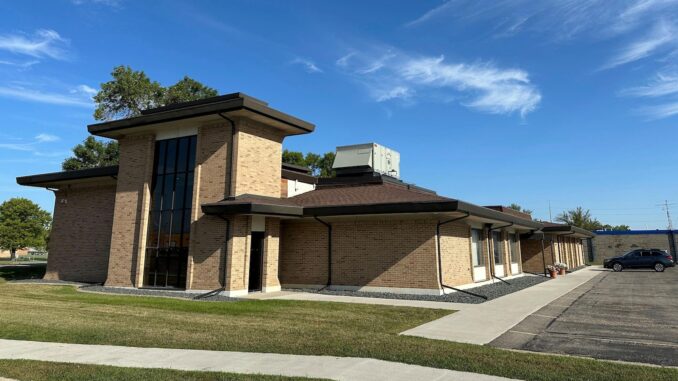
BISMARCK, N.D. — North Dakota won’t be allowed to enforce its near total abortion ban while the state appeals a judge’s ruling that struck down the law.
The latest decision by District Judge Bruce Romanick means that, for now, his September ruling stands while the state appeals it to the North Dakota Supreme Court.
No abortion clinics have operated in North Dakota since the Red River Women’s Clinic moved from Fargo to nearby Moorhead, Minnesota, in 2022. The move came after the U.S. Supreme Court overturned Roe v. Wade, triggering a North Dakota law that would have automatically banned most abortions. The statute was about to take effect when the clinic sued to stop it.
“The Court has found the law unconstitutional under the state constitution,” Romanick said. “It would be non-sensical for this Court to keep a law it has found to be unconstitutional in effect pending appeal.”
Last month, the judge found North Dakota’s abortion ban unconstitutionally vague, and ruled that pregnant women in the state have a fundamental right to abortion before a fetus is viable outside the womb.
The state plans to appeal that September ruling.
A text message was sent to North Dakota Attorney General Drew Wrigley Thursday seeking comment about whether the state would also appeal Romanick’s most recent decision.
The judge heard arguments Thursday morning from attorneys representing the state and the abortion rights plaintiffs, including the women’s clinic and several physicians.
In court, Special Assistant Attorney General Dan Gaustad said the September ruling raises questions and creates confusion about what it means for dozens of state’s attorneys not named in the lawsuit and for other district court judges.
“Let’s let the North Dakota Supreme Court decide this issue and let the law remain in place like it has been,” Gaustad said.
Melissa Rutman, an attorney for the plaintiffs, said the state hadn’t met the requirements to stay the ruling that struck down the abortion ban.
“The court already concluded that there is confusion if the law is in effect because as a matter of law, the law is too vague on its face to afford doctors due process rights, and physicians are forced to guess whether their medical decisions will subject them to criminal liability,” she said.
The judge also said his previous order and judgment “are not confusing.”
North Dakota’s abortion ban made performing the procedure a felony. The only exceptions were to prevent the mother’s death or a “serious health risk” to her. In cases of rape or incest, a patient could secure an abortion up to six weeks of gestation, which is before some people realize they are pregnant.


Be the first to comment